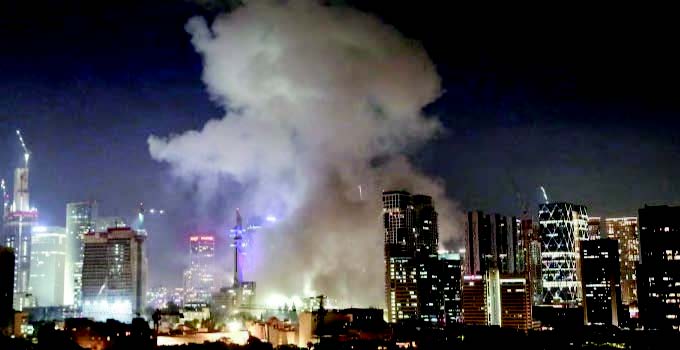June 13th, Israel launched a brutal series of airstrikes on Iran, dubbed "Operation Rising Lion," targeting its nuclear facilities, military bases, and top commanders.
The overt act of war, driven by Israel's long-standing obsession with thwarting Iran’s nuclear ambitions, killed over 224 Iranians, mostly civilians, and injured thousands, flattening residential areas in Tehran and striking Natanz, Fordow, and Isfahan. Israel’s bombardment also hit Iran’s oil and gas infrastructure, spiking global oil prices and threatening economic stability. Iran was caught off guard, but recovered more quickly from its Pearl Harbor moment than Israel expected, and it’s speculated that some targets hit by Israel may actually have been decoys.
Israel’s Prime Minister Benjamin Netanyahu, claimed the strikes were "preemptive" to halt Iran’s alleged nuclear weapon program, a narrative contradicted by Director of National Intelligence Tulsi Gabbard who testified on March 25th of this year before the Senate Intelligence Committee that the US Intelligence Community assessment was that Iran is not building a nuclear weapon and Supreme Leader Khamanei had not authorized the nuclear weapons program he suspended in 2003. Israel has been making similar claims for decades.
Iran retaliated swiftly, launching waves of ballistic missiles and drones at Israel, hitting Tel Aviv, Jerusalem, and Haifa. The strikes killed at least 13 Israelis, mostly civilians, and injured hundreds, exposing the fragility of Israel’s Iron Dome missile defense system. Iran’s Islamic Revolutionary Guard Corps (IRGC) framed the response as self-defense, targeting Israeli military sites after Israel’s slaughter of Iranian generals, scientists, and civilians. While President Trump publicly denied direct involvement, claiming Israel acted "unilaterally” but acknowledged providing “exquisite” intelligence. U.S. officials confirmed American forces helped intercept Iranian missiles, and Israel relied on U.S. intelligence and weaponry. The evacuation of non-essential U.S. embassy staff from Baghdad days prior suggests foreknowledge of Israel’s planned attacks.
Trump framed the airstrikes as a consequence of Iran’s failure to agree to a nuclear deal, noting that he had given Iran a 60-day ultimatum to negotiate, which expired just before the attacks. Trump warned Iran against targeting U.S. interests, stating, “If we are attacked in any way, shape, or form by Iran, the full strength and might of the U.S. Armed Forces will come down on you at levels never seen before.”
Over the weekend Israel asked the US “to join war with Iran”, according to Axios, and claimed that Iran "tried to assassinate President Trump twice", but Trump did not take the bait. French President Emanuel Macron pledged support, and British aircraft were reportedly seen intercepting Iranian missiles over Iraqi airspace before returning to base in Cyprus.
US-Iran nuclear talks were scheduled to take place in Oman on June 15th, but Iran has told mediators Qatar and Oman that it is not open to negotiating a ceasefire with the US while under Israeli attack, according to Reuters. On May 27th, Trump had cautioned Netanyahu against undermining these talks.
Talking to reporters as he left for the G7 summit in Canada, Trump said he hopes Israel and Iran can broker a ceasefire but said sometimes countries “have to fight it out” first.
Israel and Iran continue to trade explosions as the bodies pile up and the war is not likely to end quickly, with international pleas for de-escalation falling on deaf ears.
As (retired) US Col. Douglass MacGregor pointed out, “Russia, China, Pakistan and most of the Muslim World are rallying to Iran’s defense. Supplies, equipment and technical assistance are pouring into Iran. It’s time for a reality check”.

